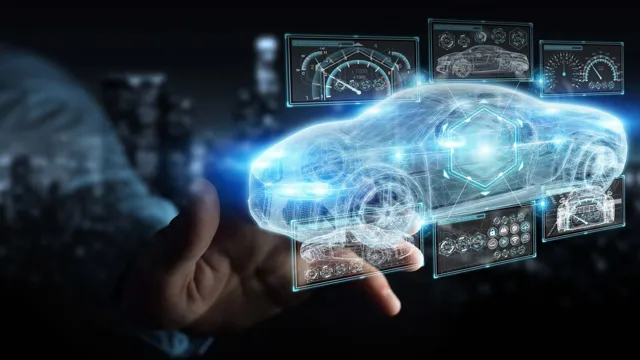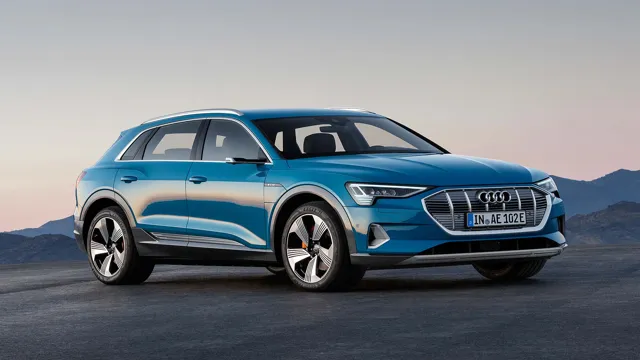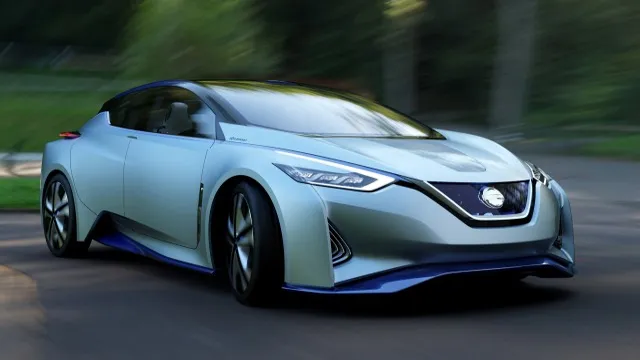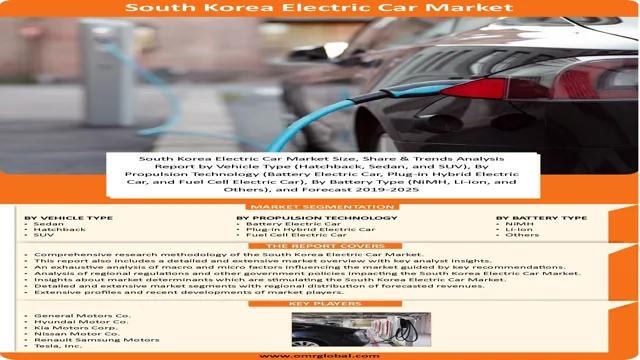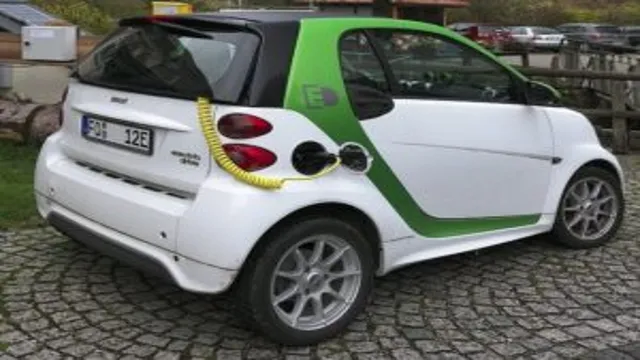Charging Ahead: Latest Breakthroughs in Electric Car Battery Technology
Electric cars are all the rage nowadays, with many people switching to this alternative mode of transportation in an effort to reduce their carbon footprint and save money on gas. However, one of the biggest concerns about electric vehicles is their battery life and how long they can go before needing a recharge. That’s why advancements in electric car battery technology are so exciting.
The latest electric car battery technology has the potential to revolutionize the way we think about electric cars. With longer battery lives, faster charging times, and better performance overall, these new batteries are sure to make electric cars even more appealing to eco-conscious consumers. But what exactly is this new technology, and how does it work? Well, there are a few different types of electric car batteries currently being developed, each with their own unique benefits.
Some use solid-state electrolytes to improve performance, while others rely on new materials like silicon instead of graphite to increase energy density. No matter which specific technology emerges as the winner, one thing is clear: the latest electric car battery technology is a game-changer. With these new batteries, electric vehicles will become even more practical and convenient, making it easier than ever for people to make the switch to sustainable transportation.
So, are you ready to hop on board the electric car revolution?
Innovative Developments
Electric car battery technology news has been abuzz with innovative developments lately. One of the most promising advancements is the use of solid-state batteries instead of the traditional lithium-ion batteries. These batteries are much safer and have a higher energy density, leading to longer driving ranges and faster charging times.
Companies like Toyota, BMW, and Volkswagen have already made investments in developing solid-state batteries, and they are expected to hit the market within the next decade. Another exciting development is wireless charging technology for electric cars, eliminating the need for cords and cables. Imagine simply parking your car over a charging pad and having it automatically charge.
This technology is still in its early stages, but it has great potential to streamline the electric car charging process in the future. With these big strides in battery technology, we can expect electric cars to become more practical and accessible to the everyday consumer in the near future.
Advancements in Lithium Ion Batteries
Lithium Ion Batteries Lithium-ion batteries are an essential component of our modern world. They power everything from our smartphones to electric vehicles. As technology advances, researchers are constantly searching for ways to improve these batteries, making them more efficient, safer, and longer-lasting.
One innovative development in lithium-ion batteries is the use of solid-state electrolytes. These electrolytes replace the traditional liquid electrolyte and offer several benefits, including improved safety and longer battery life. Another exciting advancement is the use of silicon anodes.
Silicon can store up to ten times more lithium ions than traditional graphite anodes, meaning more power can be stored in the same space. These advancements are just the beginning, and as technology continues to evolve, we can expect to see even more improvements in lithium-ion batteries.
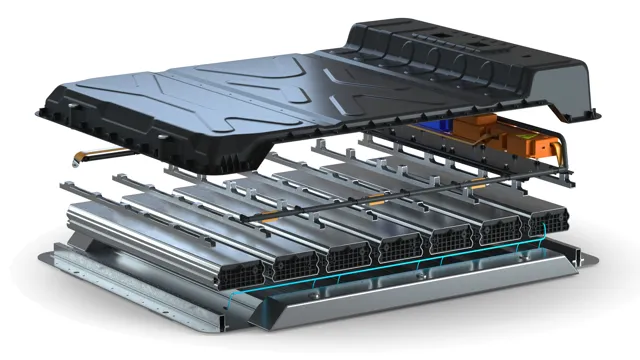
Solid State Battery Research
Solid State Battery Research has made impressive strides forward in recent years, showing innovative developments that could revolutionize the battery industry. Solid-state batteries have the potential to be much safer, more efficient, and longer-lasting than traditional lithium-ion batteries. This is because solid-state batteries use a solid electrolyte instead of a liquid one, which eliminates the flammability issue present in traditional batteries.
Additionally, solid-state batteries can hold more energy and recharge faster, making them an attractive option for a wide variety of applications. With these advantages, it’s no wonder that solid-state battery research is being pursued by major manufacturers. As the technology continues to grow, these batteries will become more widely available and could eventually replace traditional batteries altogether.
Sustainable Solutions
Electric car battery technology news is rapidly changing the landscape of transportation and sustainability. With the growing concern for the environment, battery technology has become an essential part of moving towards sustainability. Many automakers have started producing electric cars that are affordable, efficient, and eco-friendly, which is good news for the environment.
Innovations in electric car battery technology have allowed for faster charging times and a longer driving range, making them more practical for daily use. The development of solid-state batteries has the potential to revolutionize the industry further. Solid-state batteries are less prone to overheating, safer, and have a much higher energy density than traditional lithium-ion batteries.
This means we could drive further and faster without a need for frequent recharging. As these technologies continue to improve, electric cars will become a more viable option for an increasing number of people. The future of transportation is electric, and it’s exciting to see the advancements underway that will make that a reality.
Recycling and Reusing Batteries
Recycling and reusing batteries is an essential part of sustainable living. Many people don’t realize the importance of properly disposing of batteries. When batteries are thrown away in regular trash bins, they end up in landfills, where they can release toxic chemicals into the environment.
These chemicals can be harmful to human health and can contaminate soil and water. To avoid this, it’s essential to recycle batteries instead. Battery recycling centers can safely remove hazardous materials from batteries and reuse the remaining metals.
By reusing these materials, we can reduce the amount of new resources we need to produce batteries. This helps to conserve natural resources and reduce greenhouse gas emissions. So, the next time you need to dispose of batteries, take them to a recycling center instead of throwing them in the trash.
It’s a simple action that can make a big difference in the health of our planet.
Eco-Friendly Materials for Battery Production
If we want to produce batteries in a way that is sustainable and environmentally friendly, we need to think about the materials we use. One promising option is to use lithium extracted from geothermal brine, which is a much less carbon-intensive process than traditional methods. Another possibility is to use recycled materials like cobalt and nickel, which can reduce the amount of raw materials we need to extract from the earth.
Additionally, there are efforts underway to develop batteries made from organic materials like cellulose, which could further reduce the environmental impact of battery production. By exploring these eco-friendly materials, we can create a more sustainable future where our energy storage needs are met without compromising the health of the planet.
Renewable Energy for Charging Stations
As the world’s reliance on electric vehicles grows, the need for charging stations becomes more pressing. However, the energy required to power these stations can often come from non-renewable sources. That’s where renewable energy steps in as a sustainable solution.
By incorporating solar panels, wind turbines, or hydroelectric power, charging stations can rely on clean energy to keep vehicles running. Not only does this reduce the carbon footprint of charging stations, but it also ensures a more reliable source of energy. Imagine a charging station powered solely by solar panels – it not only provides clean energy, but it also allows for off-grid charging in remote areas.
Renewable energy for charging stations is an exciting step towards a greener future.
Industry News
Electric cars have been on the rise in recent years, and with it, we’ve seen a growing interest in electric car battery technology news. There has been a lot happening in the industry, with numerous companies working on developing new and improved batteries for electric vehicles. For example, Tesla recently announced that they are working on a new “tabless” battery design that will improve the range and power of their cars.
This groundbreaking design will reportedly reduce the battery’s weight and increase its energy density. Furthermore, researchers at Stanford University have developed a new lithium-ion battery that could potentially last for up to 20 years. The battery uses a nanoscale architecture that helps prevent the growth of lithium metal dendrites, which can cause short circuits and reduce the battery’s lifespan.
Overall, it’s an exciting time to be following the electric car battery technology news, and it’s clear that we can expect to see significant advancements in this field in the coming years.
Upcoming Electric Car Releases
Electric Cars As the world moves towards a more sustainable future, the electric car industry is gaining some serious momentum. With the push towards zero carbon emissions, several electric car releases are lined up for the near future. One of the most anticipated releases is the Tesla Cybertruck.
This futuristic vehicle is expected to revolutionize the pickup truck industry with its impressive design and electric performance. Another electric car set to take the market by storm is the Ford Mustang Mach-E. This battery-powered SUV promises an impressive range and fast-charging capability, making it a practical choice for longer journeys.
Other upcoming electric car releases include the Volkswagen ID.4, Audi e-tron GT, and the Porsche Taycan Cross Turismo. These vehicles showcase the changing face of the automotive industry and its shift towards a more sustainable future.
As technology continues to advance, the possibilities for electric cars are endless, making them a popular choice for eco-conscious drivers.
Collaboration between Automakers and Battery Manufacturers
As the demand for electric vehicles (EVs) continues to rise, automakers are turning to battery manufacturers for collaboration. The industry is constantly evolving, and electric propulsion is no exception. However, creating a reliable and sustainable EV battery is no easy task.
Automakers look to battery manufacturers to provide their expertise while working to develop batteries that have improved range, cost, and safety. In turn, battery manufacturers seek to establish a solid partnership with automakers to ensure the batteries they produce meet the demand of consumers and can be seamlessly integrated into future EV models. This collaboration is crucial in the achievement of electrification goals and addressing environmental concerns as the world transitions from fossil fuels to electric power.
Future Forecasts
Over the past decade, electric car battery technology has seen some impressive advancements, signaling a bright future for the electric vehicle market. With an ever-growing focus on sustainability and a push towards renewable energy, it’s no surprise that the demand for EVs is at an all-time high. Leading manufacturers such as Tesla, BMW, and Nissan have invested heavily in developing powerful, long-lasting batteries with quick charging capabilities.
As a result, the electric car battery technology news is always exciting, with recent advancements in solid-state batteries and lithium-sulfur batteries promising even more impressive results. While these technologies are still in the experimental stage, their potential could be profound, leading to cheaper, lighter, and more powerful batteries for electric vehicles. It’s safe to say that as the world moves towards a cleaner, more sustainable future, we will continue to see explosive growth in the electric car market and the technology that drives it forward.
Conclusion
In conclusion, electric car battery technology news is a story of innovative and sustainable progress. With advancements in power density, range, charge time, and safety, electric vehicles are poised to become the ultimate mode of transportation. As our society evolves to prioritize environmental responsibility and energy efficiency, the future of electric car battery technology looks brighter than ever.
So, let’s charge up and hit the road at full speed towards a cleaner, greener future.”
FAQs
What is the latest electric car battery technology news?
The latest electric car battery technology news includes advancements in solid-state batteries, longer battery life, and increased energy density.
How long do electric car batteries typically last?
The lifespan of electric car batteries varies, but most manufacturers offer warranties for at least 8 years or 100,000 miles. Some batteries can last much longer, up to 500,000 miles or more.
What are the advantages of electric car batteries compared to traditional gasoline engines?
Electric car batteries are more efficient, produce zero emissions, and require less maintenance than traditional gasoline engines. They also offer better acceleration and a quieter ride.
What are the disadvantages of electric car batteries?
The main disadvantages of electric car batteries are limited range, longer charging times, and higher upfront costs compared to traditional gasoline engines. However, these factors are improving as technology advances and battery costs decrease.

